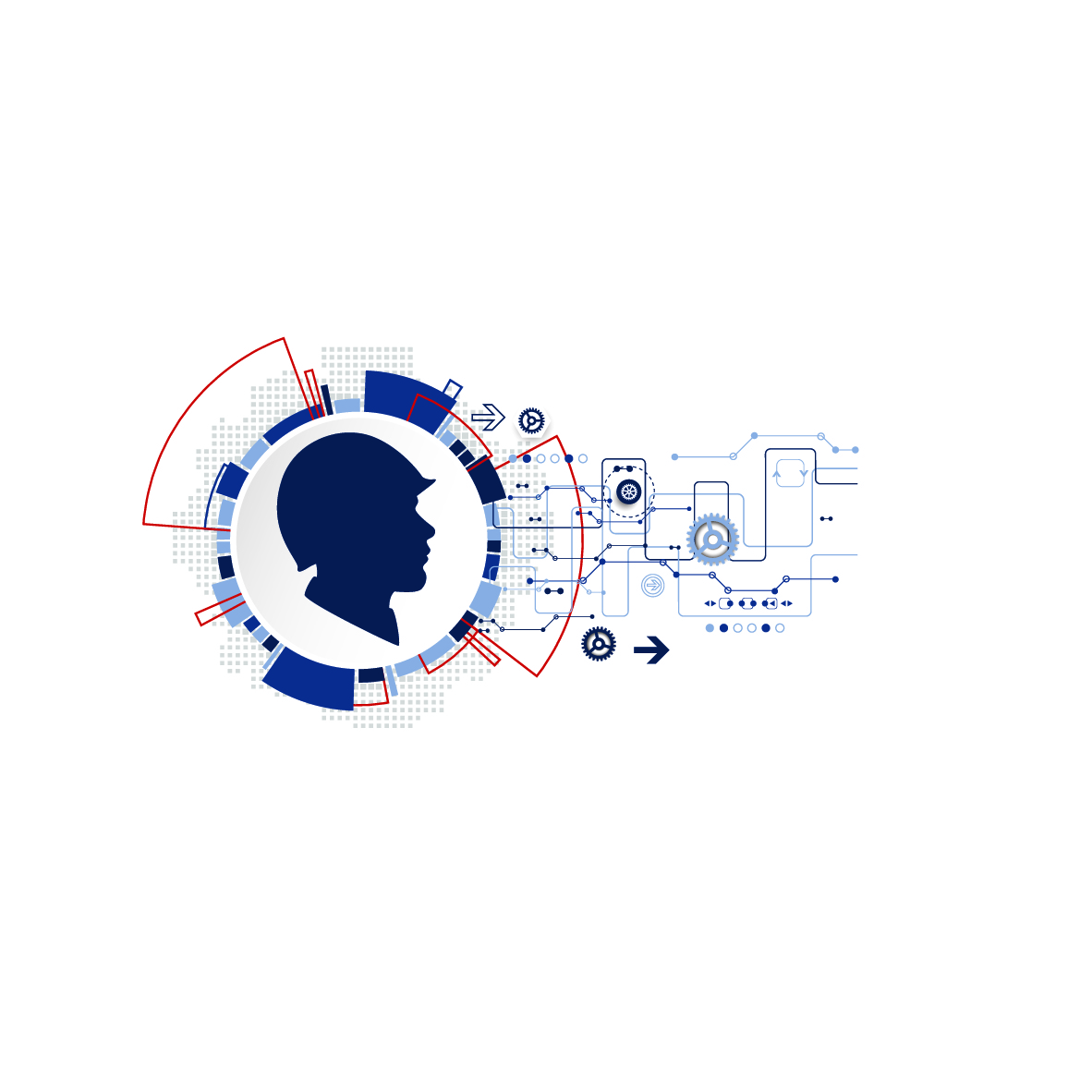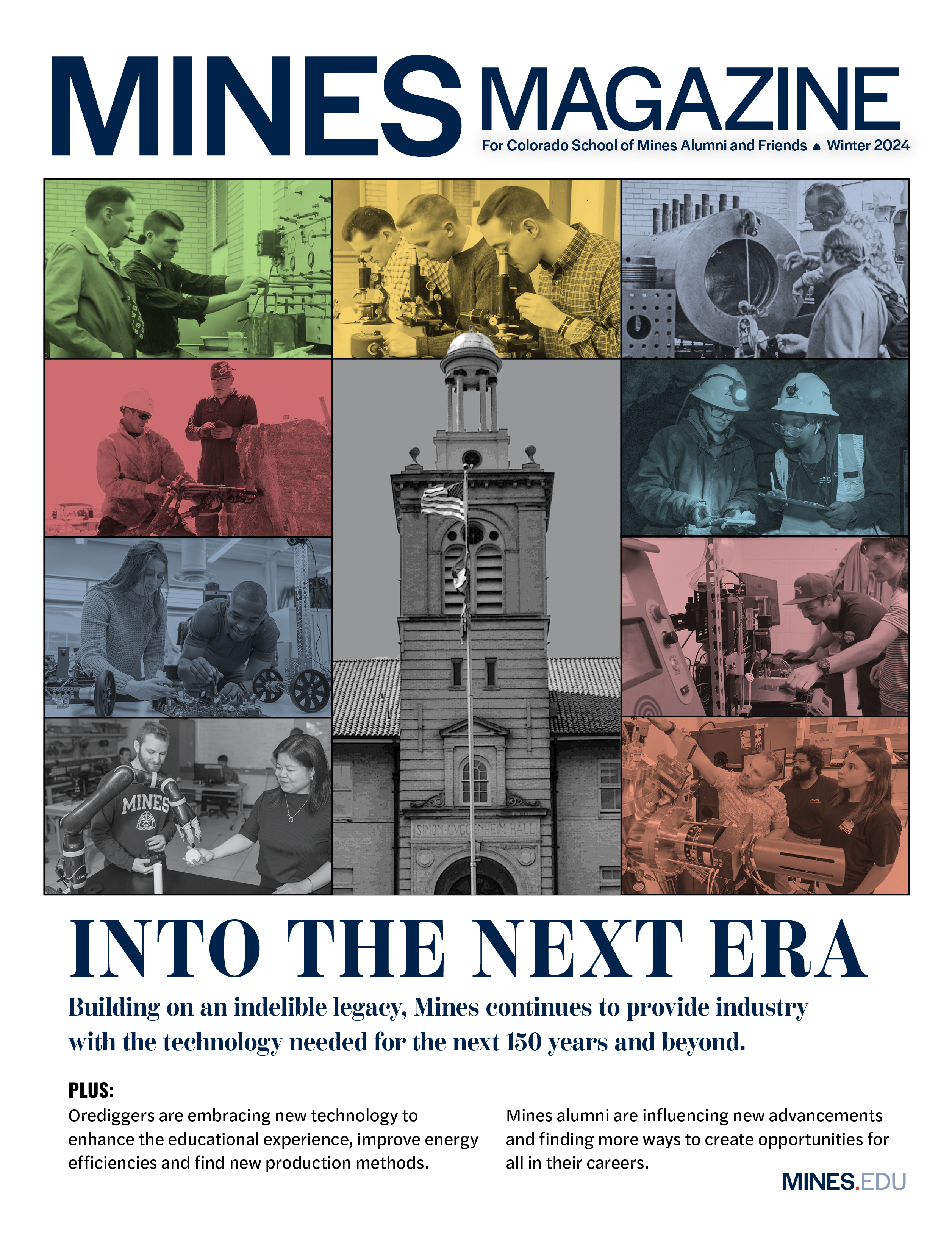Joining forces: Military veterans find support at Mines and careers at national labs

One of Marine Corps veteran Michael Knight’s dreams is to work for the National Renewable Energy Laboratory when he graduates with his PhD in materials science in 2021.
And it won’t just be his degree from Mines that’ll help him get there. National laboratories, a network of scientific research institutions for the federal government, are also looking for military training in future hires and the skills such as leadership, problem-solving and tactical thinking that come along with it.
“One of the main benefits is you already know [veterans] have this mindset that they want to serve their country, they want to accomplish a mission, and that’s the objective of the national labs as well,” Knight said. “A lot of them have worked in classified environments before—they understand those types of things. It just makes sense—if they’re an engineer and a veteran, why not seek them out?”
And that’s exactly what the national labs are doing through a growing partnership with Mines and other higher education institutions to recruit veterans to their ranks.
In November 2019, nine labs participated in a Vets2STEM event on the Mines campus, where Colorado student veterans, as well as other members of the military community, were invited to learn more about their work and job opportunities. These include 10,000 open positions in engineering alone.
Beth McCormick, director of strategic workforce development for California’s Lawrence Livermore National Laboratory, which helps maintain the nation’s nuclear stockpile, said veterans tend to stay in these jobs longer than other employees, which is another reason they’re attractive candidates. And in partnering with schools such as Mines, the labs can ensure they’re getting candidates with the right education.
What makes Mines a good go-between is its focus on “mission-related” work, said Sridhar Seetharaman, associate vice president of research at Mines. “It’s not for the sake of science. Most of the work is done for an application, a practical application that impacts something or the other. I think that resonates with veterans.”
Seetharaman is currently working on ways to help more veterans get a Mines education, such as scholarships and fellowships to fund their education for a fifth year of schooling after the 36 months of Post-9/11 GI Bill entitlement runs out. He said the school is also considering giving credit for specialized military training, as other universities have done, and granting credit for paid internships at national labs, which will help stretch the benefit a bit further.
Knight said Mines is becoming increasingly welcoming to veterans in other ways, too. Since he started in 2017, Mines has added veterans to the list of students who get priority registration and created parking spots for Purple Heart recipients. And as of last summer, the school now has a Veteran Resource Center on campus.
“Mines is really turning a new chapter in supporting veterans,” Knight said. “We have tons of support from the administration, and the sky’s the limit.”
We talked with recruiters from various national laboratories at the Vets2STEM event in November 2019 to get their thoughts about what veterans bring to the table in a national lab setting and how schools like Mines facilitate the transition between military service and a national lab career. Here’s what they had to say:
What makes a military veteran an attractive candidate for a position in a national lab?
“Usually our nation’s veterans will leave service with a tremendous amount of skills and talents that they can then provide to some of the training or workforce needs we have at the laboratories. As an example, we have several service members who are leaving the Department of Defense and have a strong niche in cybersecurity, which is one of the areas we are looking to increase within our national labs. It only makes sense to go where we know that talent is, and that’s within our veteran community.”
Tony Lona
Veteran and Disabilities Recruiting Specialist
Sandia National Laboratories
“Their unique skill sets. They’ve been out there—they’ve seen some of the things we’re trying to work on and know how to do the hands-on, applied type of work that we’re looking for. And because of their military history and the experience they have, they bring a unique perspective and some really interesting ideas and can contribute in a really big way.”
Marissa Reigel ’05, PhD ’09
Group Manager, Energy and Material Science Directorate
Savannah River National Laboratory
How do universities like Mines help facilitate the transition from the military to a national lab?
“Partnerships with universities are critical to our workforce. They’re our national ambassadors. They are developing the students with pedagogy and academia, and being able to transfer those skills to the workforce is definitely critical to what we need. We’re partners in that experience— universities develop students academically, and then the national labs provide the opportunities where they can really get a hands-on experience.”
Colette Flood
Manager of Workforce Development and Education
Lawrence Berkeley National Laboratory
“Mines is a great university to prepare students for national laboratories because of the challenging curriculum. Mines obviously has a great reputation for being an academically challenging institution. Those challenges will be very correlated to what you’re going to be doing at a national laboratory day in and day out.”
Neil Altomare
Operations Engineer
Sandia National Laboratories
A lot of students dream of joining SpaceX or Tesla, Google or Boeing. Why might they look to a national lab instead?
“I know that a lot of students want to work at some of the big-name companies—SpaceX, Tesla, Google or Amazon. They can have really great careers there. But I think the mission impact, the things we do at the national labs, change the world for the better every day.”
Zachary Tudor
Associate Director, National and Homeland
Idaho National Laboratory
A PLACE EXCLUSIVELY FOR VETERANS
Mines recently opened a new Veteran Resource Center to serve student veterans on campus. Operated by the Mines Veterans Alliance, the resource center will serve as the hub for all veteran activities, including being a space for student veterans to come together to share experiences, study for classes, find resources to help them succeed at Mines and more. The center also hosts rotating office
hours for various campus departments, encouraging veterans to use services they need but may not be familiar with.
“My one piece of advice for student veterans who are just starting at Mines would be to go above and beyond,” said Michael Knight, a U.S. Marine Corps veteran and president of the Mines Veterans Alliance. “Don’t
just show up for classes—actually interact with other students. Having a community is hugely important to success.”
To hear more from Knight and to learn more about the services now available through the Veteran Resource Center, watch the video on our website.
For more information about Mines veterans services, go to mines.edu/veterans.



Thanks to mines for their support to Veterans but could not understand the following statement…. “We have tons of support from the administration, and the sky’s the limit.” please, I would like to know the “tons of support”. Thanks